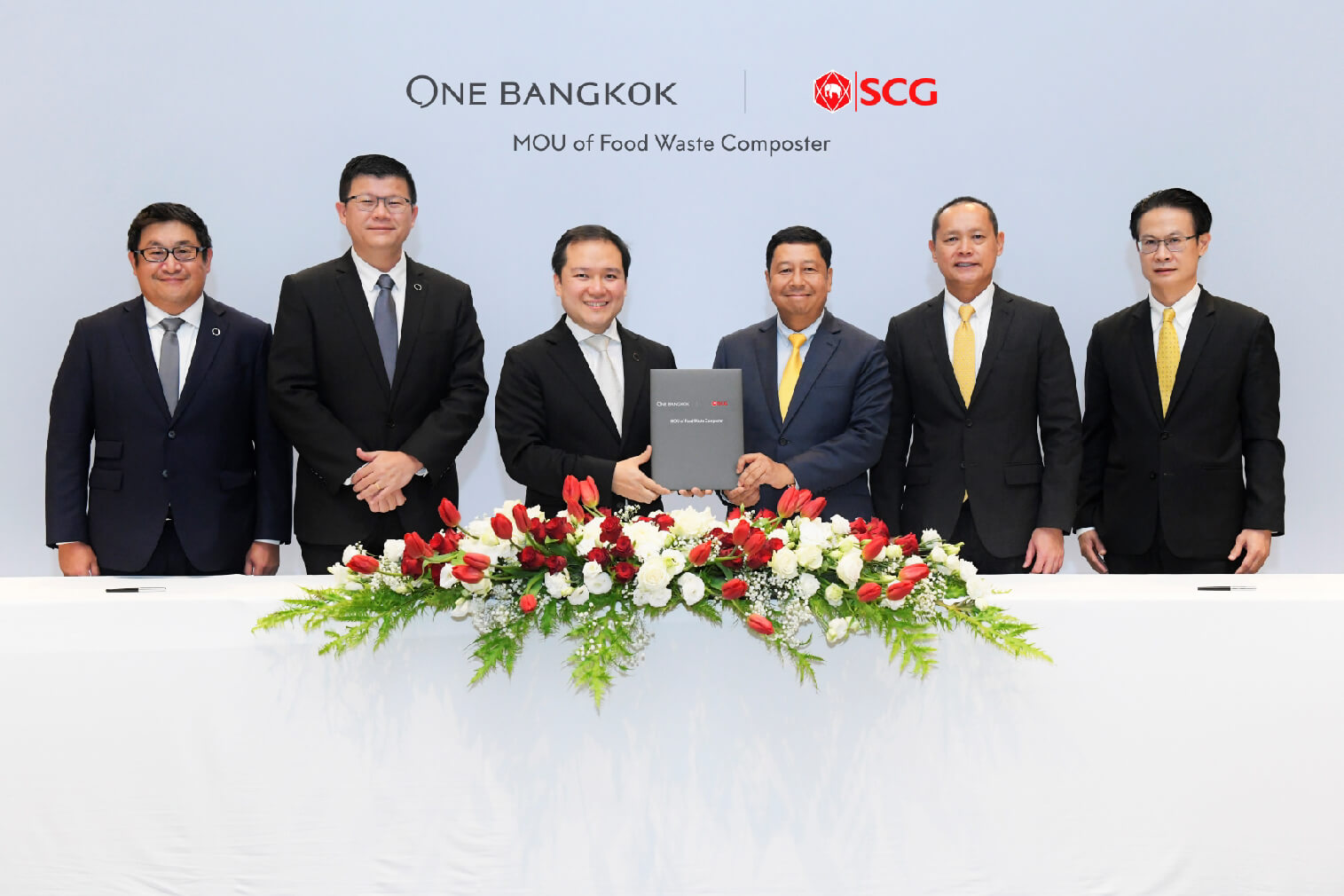Search
Recent Search
Directory Shop

Recent Search
Directory Shop
24 Aug 2022

Mr. Lim Hua Tiong, Chief Executive Officer, One Bangkok said: “We are committed to raising sustainability standards and proud to partner with SCG once again to introduce the food waste management using this high-efficiency technology to process the food and organic wastes. We expect the composter to generate surplus organic fertiliser, which we intend to distribute to local communities and public entities to help maintain the city’s parks and gardens. By bringing such cutting-edge solutions to Thailand, we hope to inspire more businesses and the local communities to join us in embracing circular economy practices.”
Mr. Nithi Patarachoke, President, Cement-Building Materials Business, SCG, said “At SCG, we adhere to the principles of circular economy as part of our ESG 4 Plus targets. We previously collaborated with One Bangkok to demonstrate circular economy principles in different areas, such as using technologies to recycle crushed pile heads into precast concrete panels and to recycle autoclaved lightweight concrete (ALC) waste from construction into Q-CON sound barriers. This time, the installation and operation of the high-efficiency food waste composters will help efficiently transform food waste into fertiliser with less time as the project pledges to make the construction site net-zero and drives the construction industry towards sustainable development.”
This food waste management solution has proven to be of great utility at leading properties globally, such as Heathrow Airport in the United Kingdom, the Brisbane Convention and Exhibition Centre, Frasers Property-developed Burwood Brickworks shopping centre in Melbourne and prominent supermarkets across Europe. The technology can rapidly break down food waste into fertiliser within 10 hours. The composters operate in a closed-circuit system to control odours from the food waste. The solution is expected to reduce the amount of food waste by more than 80% and produce organic fertilisers and soil amendment materials with plant minerals in accordance with the criteria from the Department of Agriculture.
This food waste composting system will be installed at One Bangkok since the construction phase, aim to process food waste generated from thousands of construction workers. The system will be fully operational and integrated for use throughout the development. The expected results include:
Tag
SHARE